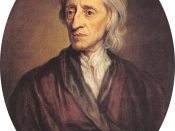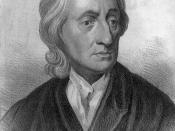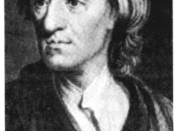Who was Marie Gouze? Why was she executed? What did her campaign illustrate about Enlightenment ideals? Marie Gouze was a French woman who fought for women's rights. She was executed because she was in good favor with Queen Marie Antoinette. Revolutionary leaders were afraid of her influence. Her campaign demonstrated that Enlightenment ideas did not just apply to men and their world.
In the late 18th and early 19th centuries, a series of revolutions brought dramatic political and social change in Europe and the Americas. In chronological order, give the four dates and places of revolution which took place.
In 1776 a revolution began in North America between England and its American colonies.
In 1789 a revolution began in France between its people and its government.
In 1791 a revolution began in Haiti.
In 1807 revolutions broke out all over Latin America.
These revolutions "had two results of deep global significance."
What were they? Through these revolutions, two major parties emerged in societies. Conservatism and Liberalism were a result of these revolutions.
What are the three Enlightenment (and revolutionary) ideas discussed in detail in your text which ultimately spread around the globe after the American and French revolutions? The three main concepts discussed in this reading are popular sovereignty, individual freedom, and equality.
What is the meaning of "popular sovereignty?" How did John Locke contribute to this concept of popular sovereignty? "In effect, Locke's political thought relocated sovereignty. . . ." Explain.
Popular sovereignty is a political system that gives power to the general population. John Locke contributed to the creation of this system. He discovered the natural laws of government.
Who were these men who pushed for these new revolutionary ideas? How far (to whom) were they willing to extend the practice of freedom and equality? The...


